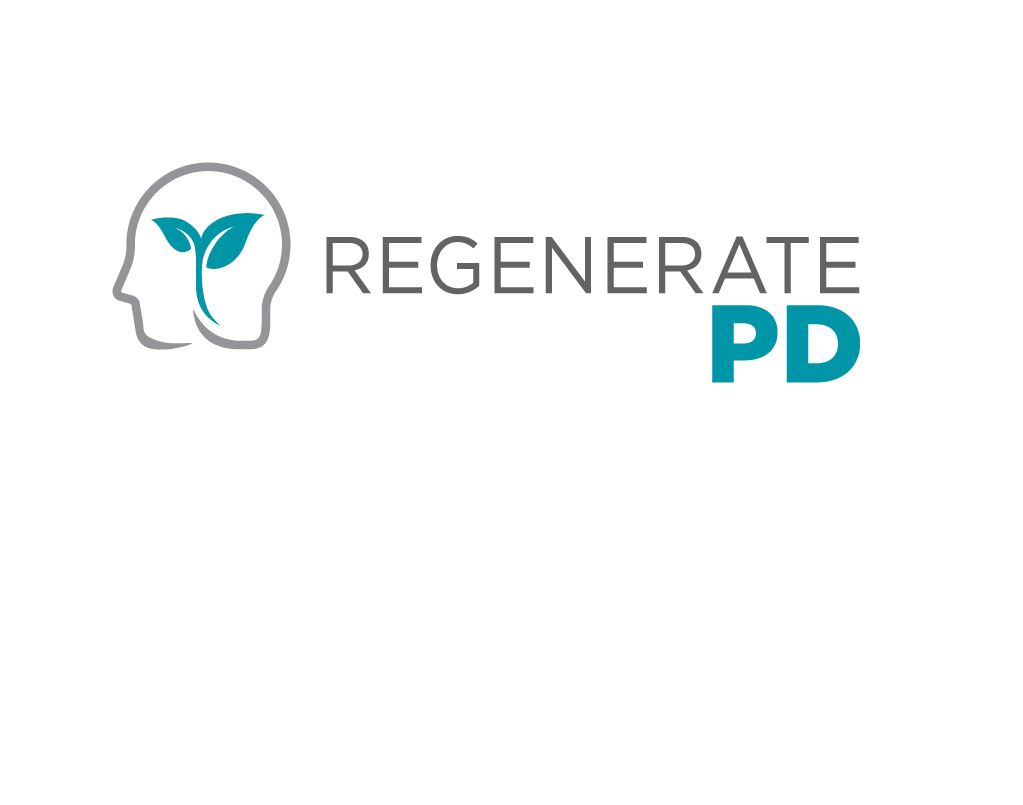Do you or does someone you know have Parkinson’s disease?
AskBio is conducting a phase 2 gene therapy clinical trial named REGENERATE-PD for individuals with Parkinson’s disease (PD).

AskBio is conducting a phase 2 gene therapy clinical trial named REGENERATE-PD for individuals with Parkinson’s disease (PD).

The REGENERATE-PD clinical study is looking for people with moderate-stage Parkinson’s disease to take part in a study of an investigational gene therapy.
You may be able to take part in this clinical study if you live in the U.S, U.K., Poland or Germany, are between 45-75 years old and have been diagnosed with non-inherited Parkinson’s disease in the past 4-10 years.


Share your contact details to allow us to get in touch with you.

Complete a questionnaire to see if you are able to take part in this REGENERATE-PD clinical study. This questionnaire will only gather the minimum medical data needed to assess if you potentially qualify at this initial stage.

If your answers to the questionnaire suggest you may be able to take part in this study, you can schedule a phone call with a Patient Navigator. They will further assess your eligibility for the REGENERATE-PD trial and provide you with more information, so you can decide if this trial may be for you.
The purpose of this clinical study is to evaluate the safety and effectiveness of an investigational gene therapy, called AB-1005, for the possibility of treating moderate Parkinson’s disease.
The investigational therapy examined in this clinical trial is named AB-1005, previously known as AAV2-GDNF. It will be given once via brain surgery, under general anesthesia.
It uses a virus not known to result in human disease (Adeno-Associated Virus serotype 2, AAV2) to deliver the glial cell line-derived neurotrophic factor (GDNF) gene to the brain. This gene therapy could potentially help preserve the nerve cells that produce dopamine, which are gradually damaged or destroyed as Parkinson’s disease progresses. By potentially protecting and repairing these nerve cells so that they can continue to produce dopamine, this therapy aims to stabilize some of the motor and non-motor function related symptoms associated with Parkinson’s disease.
The safety and tolerability of AB-1005 have been studied in an open label phase 1 clinical trial, in participants with mild and moderate Parkinson’s disease. Phase 1b 36-month data demonstrated that AB-1005 was well tolerated with no attributed serious adverse events. Most of the adverse events reported were temporary and expected during the first month after the surgical procedure. These included headache, tremor, dyskinesia, arthralgia, musculoskeletal chest pain, fatigue, COVID-19, and magnetic resonance imaging (MRI) abnormalities. The preliminary results of the ongoing phase 1 clinical trial with AB-1005 demonstrate that patients with moderate Parkinson’s disease may experience an increase in GOOD ON time – time when the person is not experiencing symptoms – and motor function after a single dose of AB-1005. For patients with mild Parkinson’s disease, the preliminary results report the treatment appears to help maintain stability across multiple motor and non-motor outcomes. However, AB-1005 is an investigational therapy, which means that its efficacy and safety have not been determined or fully evaluated, and it has not been approved as a marketed product by the Food and Drug Administration (FDA) or any other regulatory (government) authority.
The new phase 2 trial REGENERATE-PD was initiated to further investigate the efficacy and safety of this AB-1005 in patients with moderate Parkinson’s disease.
No. Study Participants will be randomly assigned to either receive the investigational treatment or not. Specifically, two out of three of the people enrolled will receive the investigational therapy during surgery, while one person will undergo a control surgical procedure where a small cut will be made in the skin of the head only. Neither the participants nor the study neurologist will know who has received or has not received the study drug until the end of the follow-up period. This is called “double-blind” and helps study investigators to compare the results in those who had the investigational gene therapy surgery and those who did not.
All participants will be informed if they did or did not receive the study therapy once the last participant has completed the 18-month visits. If you are in the control group, the investigational therapy will be offered to you if it is felt to be safe to administer, and if you still meet the inclusion criteria.
Eligible participants must:
There are additional requirements, which the study doctor will discuss with you if you are interested in participating.
If you choose to take part in REGENERATE-PD, and are able to take part in this study, you may be in the study for up to 5 years. The study consists of the following:
Parkinson’s disease (PD) is characterized by a progressive loss of the brain cells (neurons) that produce dopamine, causing a gradually deterioration of some parts of the brain.
Common symptoms include shaking movements in certain parts of the body, muscle stiffness slow movements, troubles with balance, and falling. In later stages, some individuals may find it harder to walk, talk, or perform everyday tasks. Some people may also have mental and behavioral changes, sleep problems, depression, memory difficulties, and fatigue.
There is currently no cure for Parkinson’s disease. However, physicians may offer various treatments to help manage symptoms and help to improve quality of life. These may include:
Despite these treatments, Parkinson’s disease continues to progress over time. Ongoing research focuses on finding new ways to slow or stop the progression of the disease and improve outcomes for people living with Parkinson’s disease.
This study is recruiting people aged 45-75 with moderate Parkinson’s disease, who have been diagnosed with Parkinson’s disease in the past 4 to 10 years and who experience symptoms such as shaking or tremors when they are at rest, rigidity or stiffness and trouble walking or balance issues.
Gene therapy or gene transfer involves delivering genetic material into a patient’s cells to change or edit their function, with the aim of restoring critical functions. This study, REGENERATE-PD, is evaluating an investigational gene therapy, AB-1005. This mean this gene therapy has not been approved by any regulatory authorities for its safety and efficacy and it is not available for the general public.
The goal of gene therapy for neurodegenerative disorders is typically to provide the brain with a self-defense mechanism to improve the brain cells’ ability to handle the stresses that are causing the dysfunction or death of brain cells.
Researchers are investigating different ways that gene therapy can work to help people, including:
Genes must be packaged for delivery into your body so they can reach your cells and produce effects. Often, portions of viruses unlikely to cause infection are used for this purpose and are referred to as “vectors.”
Clinical trials, clinical studies, or clinical research studies are studies that help evaluate the safety and effectiveness of an investigational therapy or drug (in this case a gene therapy) for the possibility of treating a disease. They play a crucial role in developing treatments with the aim of improving patient health. Watch our video to learn more.
Clinical trials are essential to understand the safety and effectiveness of treatments, the correct dose to give, effective ways to administer them, and to gain scientific knowledge of diseases, hopefully providing for better health outcomes.
The term ‘investigational drug’ refers to a trial medication that has not yet received approval from regulatory authorities, such as the US Food and Drug Administration (FDA). In its investigational phase, it can only be given in clinical research studies and is not available for general use. These studies aim to evaluate whether an investigational medicine is safe and works the way it is intended in people living with a specific disease, before it can be approved for widespread use.
Clinical trials have specific patient criteria, known as clinical trial eligibility criteria, which determine who can participate. These criteria are designed to help find patients with specific symptoms or a particular diagnosis, while excluding those with unrelated health conditions. By entering or enrolling patients who are similar in their characteristics, such as the type of mutation and disease progression, clinical trial eligibility criteria may help ensure the outcomes of the trial accurately reflect the effects of the investigational drug being tested. Furthermore, these criteria play a crucial role in ensuring the safety of the patients involved.
Clinical trials carry potential risks, such as side effects, meaning the study drug may produce unwanted effects and may or may not treat your condition. There are often more tests needed than what you would do at a normal visit to the doctor, and often more visits to the clinic are needed. These are carefully assessed and monitored, and risks and benefits are carefully weighed by the Ethics Committees reviewing and approving the conduct of the trial. Clinical trials follow a specific set of standards and are closely regulated to help ensure the safety of all participants. Safety measures and informed consent processes help participants understand and manage these risks.
People take part in clinical trials for different reasons. Some may take part because they want to learn more about their disease and potential new treatments. Others volunteer to take part because they want to help researchers learn more about (the treatment of) a disease to potentially help them and others in the future.
Yes, taking part in this study is voluntary. You may receive detailed trial information, can ask questions, and decide freely. Informed consent ensures you understand the trial and can withdraw at any time without any penalty and without affecting your care or rights.
In this study, the gene therapy will be delivered through a one-time minimally invasive brain surgery. If you decide to withdraw after you have received the gene therapy, the gene therapy cannot be removed from your body. Gene therapy does not wash out of your body over time and cannot be reversed.
At myTomorrows, we assign a dedicated Patient Navigator to each patient. Your dedicated Patient Navigator will provide support throughout the process, from assessing your trial eligibility to addressing any questions you may have about the trial enrollment. Our Patient Navigators are professionals with medical background who are closely supervised by our team of medical doctors. They are proficient in languages such as English, Spanish and Arabic, ensuring effective communication and understanding with patients from diverse backgrounds.
Yes, our services of providing information about clinical trials and how to access them are always free of charge to you.
 Study centers grouped together (> 10)
Study centers grouped together (> 10)
 Study centers grouped together (< 10)
Study centers grouped together (< 10)
 Study centers recruiting
Study centers recruiting
 Study centers preparing to recruit
Study centers preparing to recruit
